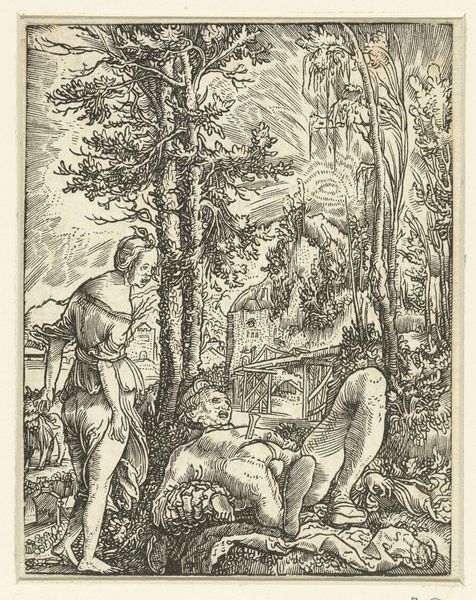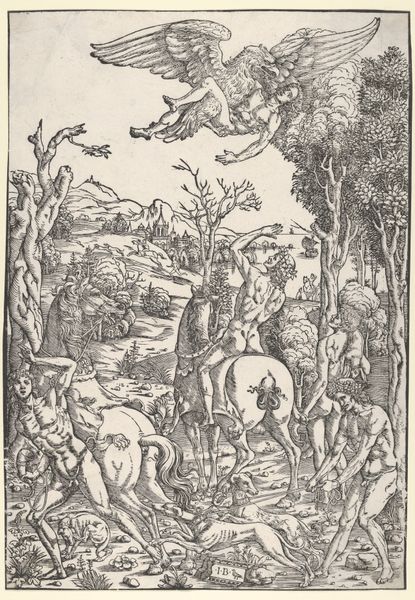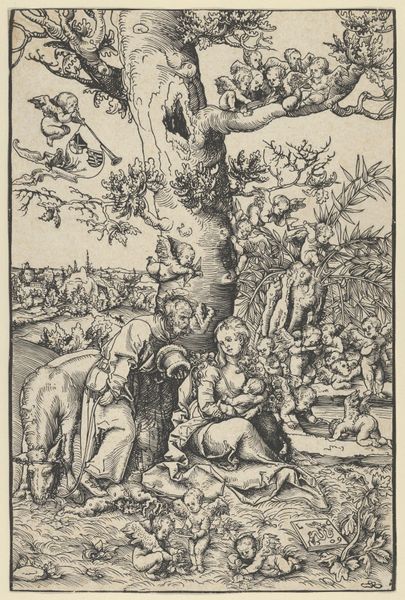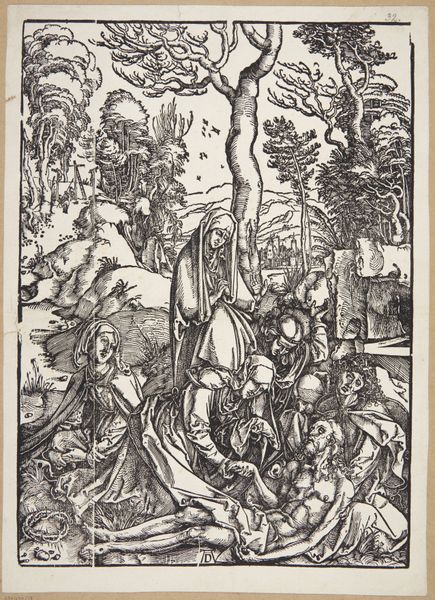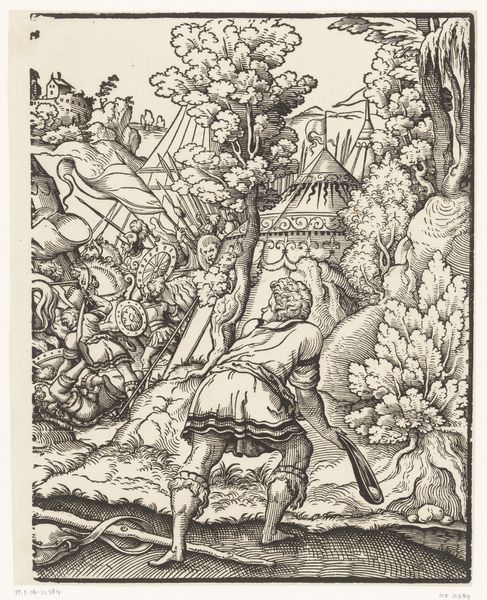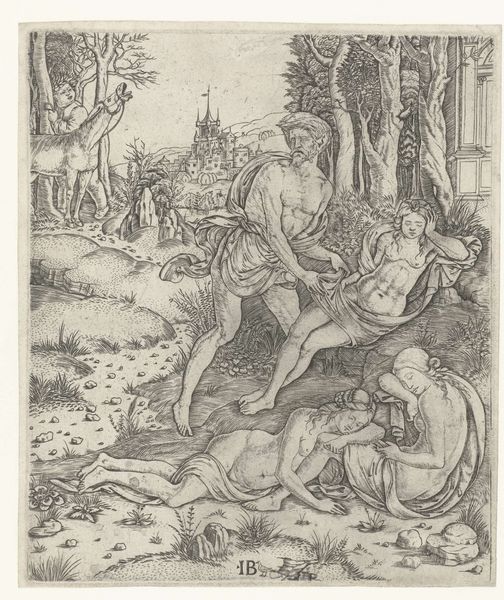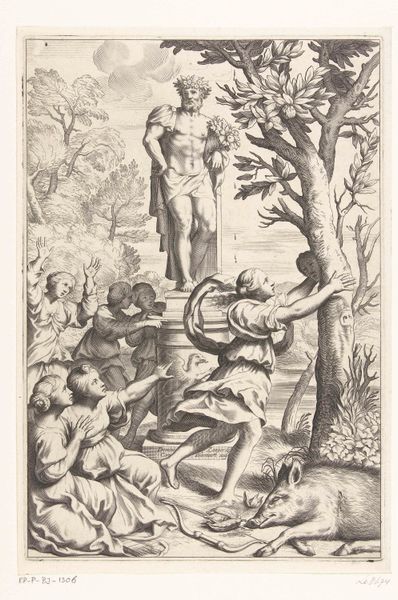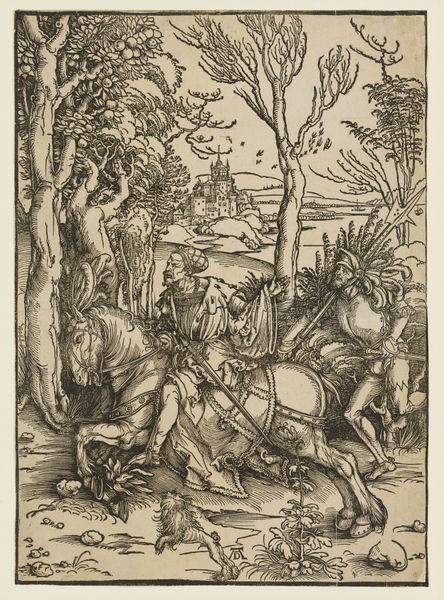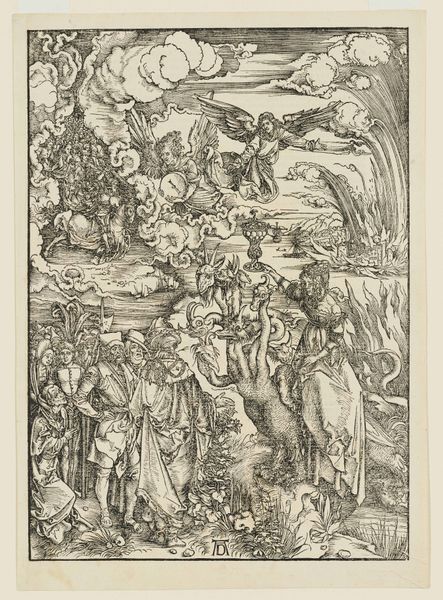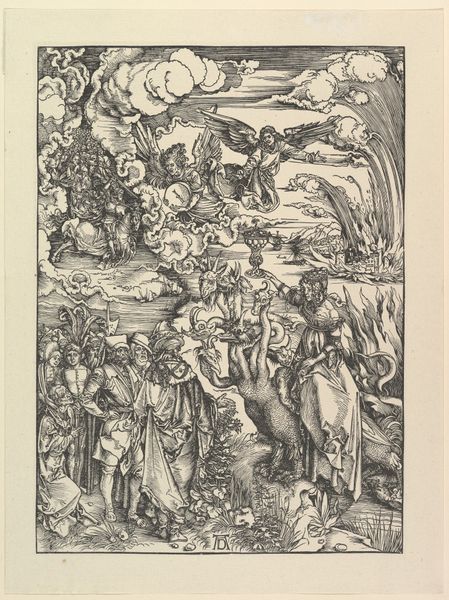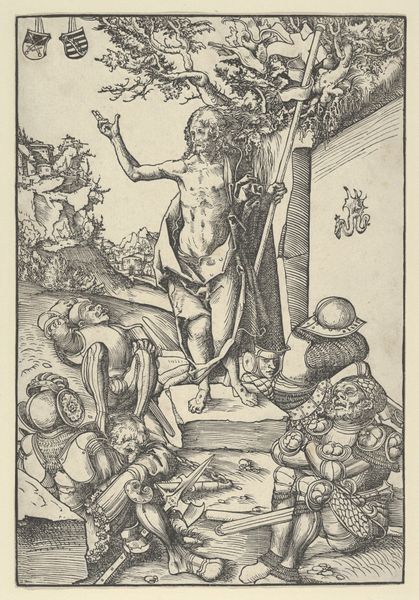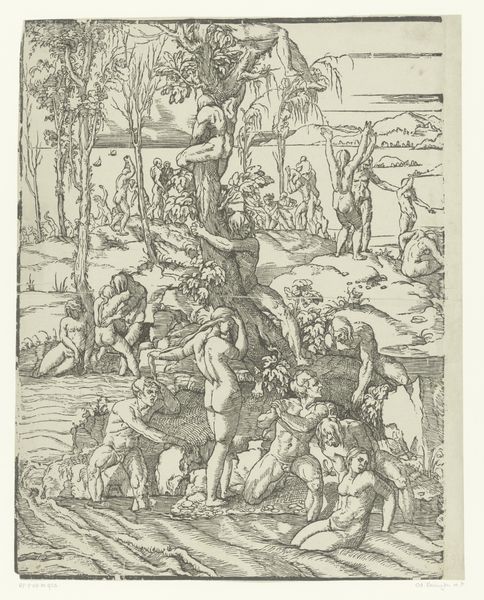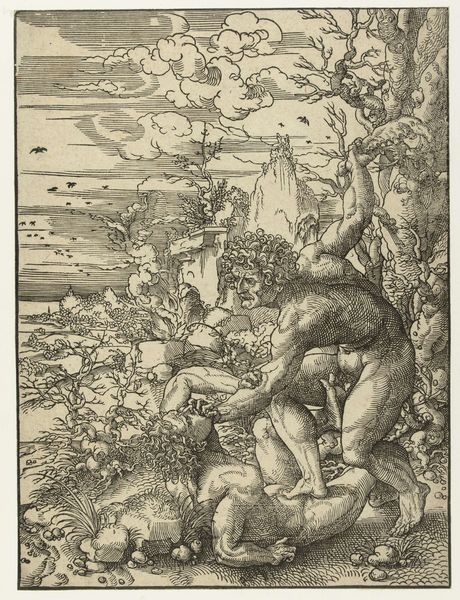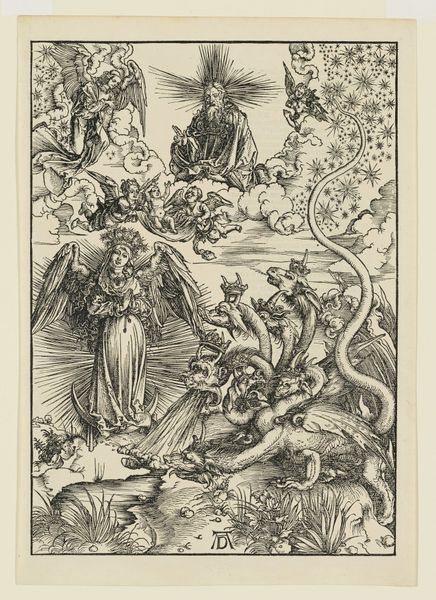
print, woodcut, engraving
#
narrative-art
# print
#
figuration
#
woodcut
#
line
#
history-painting
#
northern-renaissance
#
engraving
Dimensions: height 118 mm, width 92 mm
Copyright: Rijks Museum: Open Domain
Wolfgang Huber made this small woodcut, Droom van Paris, sometime in the first half of the sixteenth century. Here, the medium really is the message. Look closely, and you’ll see the thousands of tiny cuts required to create this intricate scene. It would have been a laborious process, requiring a high level of skill and focus. The wood itself, likely a close-grained variety like boxwood, would have offered resistance, demanding sharp tools and careful control. The resulting print, with its stark contrast and crisp lines, has a distinctive graphic quality. Notice how the density of the lines creates a sense of depth and shadow, particularly in the foliage and clouds. The labor-intensive nature of woodcut printing meant that images like this would have been relatively precious, circulated among a discerning audience. Understanding the material and process really opens up the meaning of the artwork, and blurs the boundaries between artistic vision and skilled craft.
Comments
No comments
Be the first to comment and join the conversation on the ultimate creative platform.
